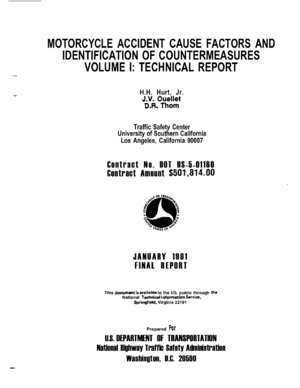Report facts for kids
A report is a special document that shares information in a clear and organized way. It's usually written for a specific group of people and for a particular reason. Think of it as a way to tell someone important facts about a topic. While you might talk about a report, the full report is almost always a written paper.
Contents
Why Are Reports Important?
In today's world, especially in business, reports are super important for things to run smoothly. They help people think clearly and make good choices. Reports are like the backbone of an organization, helping it work well.
Here's why reports are so useful:
- Reports give you lots of information about different parts of a business.
- Experts share their skills and knowledge through reports.
- Reports help leaders make big decisions.
- A fair and balanced report can help solve problems.
- Reports share plans, rules, and other important news about an organization with everyone. News reports can even act like a watchdog, making sure things are fair.
What Makes a Good Report?
One common way to set up a report is called IMRAD. This stands for:
- Introduction (what the report is about)
- Methods (how the information was found)
- Results (what was discovered)
- And Discussion (what the results mean)
This structure is often used in scientific research. It makes reports seem trustworthy. But reports don't always have to follow this pattern. Sometimes, a report might list a problem first, then explain how to fix it.
Being clear and focusing on quality are key to writing a helpful report. Being accurate is also super important. Imagine if a financial report had wrong numbers – that could cause big problems!
Parts of a Written Report
Reports use different features to help readers understand the topic or convince them to do something. These features include:
- Headings: These are like titles for different sections. They help you find information quickly.
- Visuals: Things like charts, tables, and pictures make complex ideas easier to understand. They also break up long parts of text.
- Table of Contents: For longer reports, this lists all the sections and their page numbers.
- Appendices: These are extra sections at the end with supporting information, like raw data or detailed charts.
- Footnotes: Small notes at the bottom of a page that explain something or give a source.
- References: A list of all the sources used to write the report. This shows where the information came from.
- Abstract: A short summary at the beginning of the report. It tells you what the report is about before you read the whole thing.
- Hyperlinks: Online reports often have links to other websites or parts of the report.
Even reports that are spoken, not written, still aim to teach or suggest an action. Good spoken reports are well-researched, and the speaker should mention their sources if possible.
How Reports Are Structured
A typical report usually includes these sections:
- Title page (the very first page)
- Executive summary (a short overview for busy people)
- Table of contents (a list of what's inside)
- Introduction (what the report is about)
- Discussion or body (the main information and findings)
- Conclusion (what was learned)
- Recommendations (suggestions for what to do next)
- Reference list (where information came from)
- Appendices (extra details)
Different Kinds of Reports

There are many types of reports, used in different situations:
- Annual reports (yearly updates from companies)
- Auditor's reports (checks on financial records)
- Book reports (about a book you've read)
- Retail reports (about sales in stores)
- Census reports (information about a population)
- Credit reports (your history of borrowing money)
- Demographic reports (about groups of people)
- Expense reports (money spent for work)
- Incident reports (about something that happened)
- Inspection reports (checking something for safety or quality)
- Military reports (information from the armed forces)
- Police reports (about crimes or incidents)
- Policy reports (about rules or plans)
- Progress reports (how something is coming along)
- Investigative reports (finding out facts about something)
- Technical or scientific reports (detailed information on a specific topic)
- Trip reports (about a journey)
- White papers (official reports on a topic)
- Appraisal reports (estimating value)
- Workplace reports (about things happening at work)
See also
 In Spanish: Informe para niños
In Spanish: Informe para niños
- Customer relationship management
- Data quality
- Decision support system
- Enterprise application integration
- Enterprise resource planning
- Global Reporting Initiative
- Grey Literature International Steering Committee – International guidelines for making scientific and technical reports
- Management information system
 | William L. Dawson |
 | W. E. B. Du Bois |
 | Harry Belafonte |


